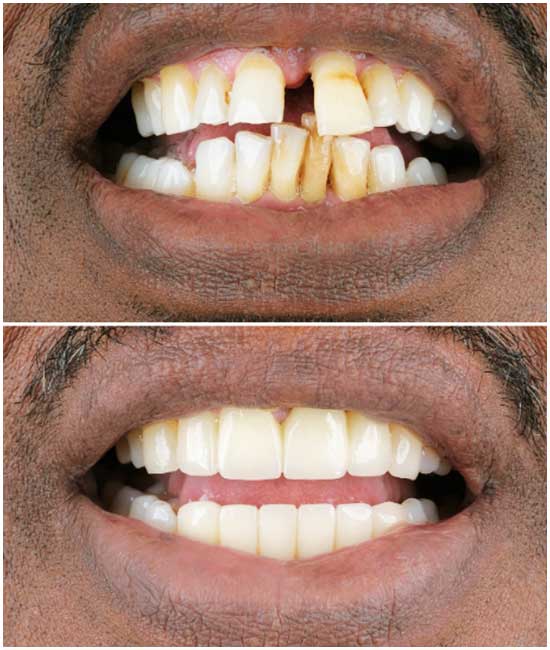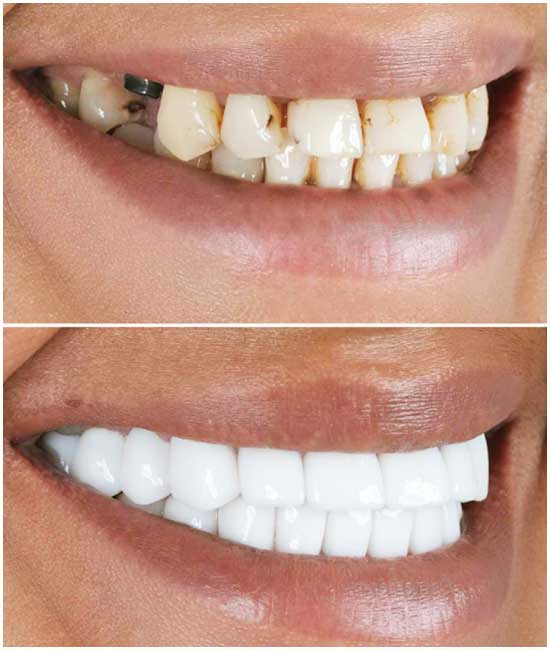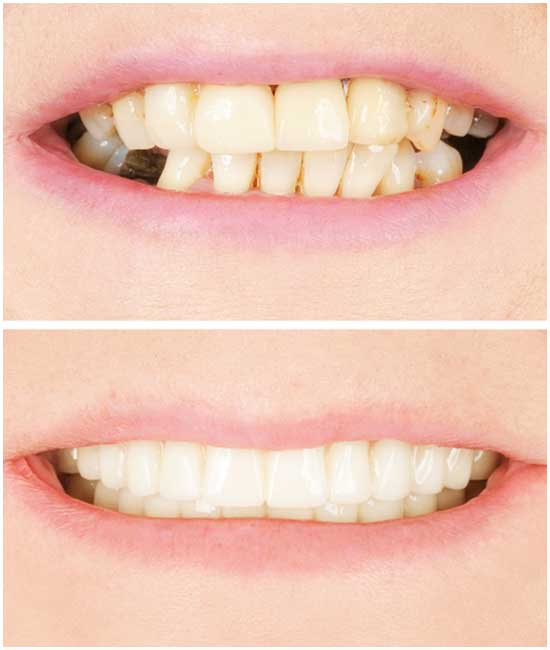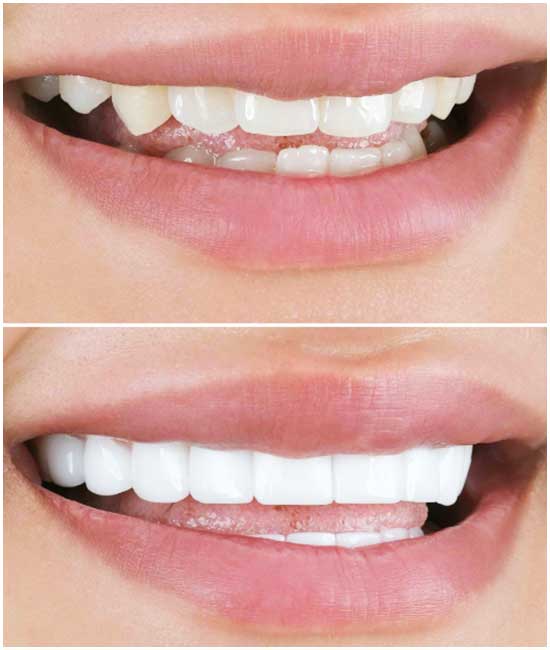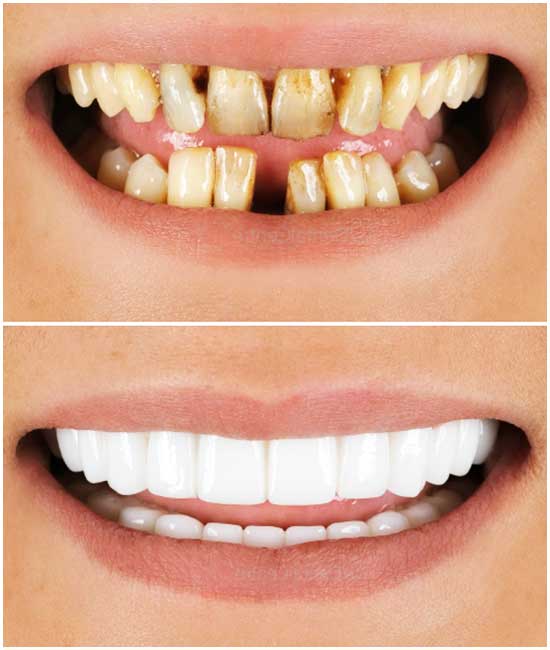Dental implants have revolutionised the field of dentistry, offering a permanent solution for missing teeth that closely resembles natural teeth in both appearance and function. In Turkey, dental implant procedures are conducted with cutting-edge technology and by highly skilled professionals, making it a popular destination for individuals seeking quality dental care at affordable prices.
This article aims to provide an overview of dental implants in Turkey, including the procedure, benefits, considerations, and what patients can expect during their treatment journey. Whether you’re considering dental implants for the first time or exploring options for dental treatment abroad, understanding the process and advantages of dental implants in Turkey can help you make an informed decision about your oral health.
These are some of the common types of dental implants available in Turkey. Each type has its unique advantages and considerations, and the choice depends on factors such as the patient’s oral health, aesthetic preferences, and budget. Consulting with a qualified dentist is essential to determine the most suitable implant option for individual needs.
Overall, dental implant treatment in Turkey follows a systematic and comprehensive approach to restore missing teeth and improve oral function and aesthetics for patients.
How much does it cost to get dental implants in Turkey?
The cost of dental implants in Turkey varies depending on factors such as the number of implants needed, the type of implants, and additional procedures required. On average, dental implants in Turkey can cost significantly less compared to many other countries.
Is it worth going to Turkey for dental implants?
Yes, many people find it worthwhile to travel to Turkey for dental implants due to the high-quality treatment offered at affordable prices, experienced dentists, modern facilities, and the opportunity to combine treatment with a holiday.
How long does a dental implant take in Turkey?
The duration of a dental implant procedure in Turkey varies depending on factors such as the number of implants, the patient’s oral health condition, and the type of implant procedure. Generally, the process can take several months to complete, including the healing period.
Why is it so cheap to get your teeth done in Turkey?
Dental treatments in Turkey are often more affordable compared to other countries due to lower operating costs, competitive pricing strategies, government incentives, and favourable exchange rates.
How many trips to Turkey for dental implants?
The number of trips required for dental implant treatment in Turkey depends on the treatment plan and the complexity of the case. In many cases, patients can complete their treatment within one visit, while others may require multiple visits for consultations, surgeries, and follow-up appointments.
Are dental implants painful?
Dental implant procedures are usually performed under local anaesthesia, so patients typically experience minimal discomfort during the surgery. Some soreness or discomfort may occur after the procedure, but it can be managed with pain medications prescribed by the dentist.
How long do dental implants last?
With proper care and maintenance, dental implants have the potential to last a lifetime. They are designed to be a durable and long-term solution for replacing missing teeth.
Are you put to sleep for dental implants?
Dental implant surgery can be performed under local anaesthesia, which numbs the area being treated, or under sedation for patients who prefer to be more relaxed during the procedure. General anaesthesia is rarely used for dental implant surgery.
How long after tooth extraction can I get an implant?
The timing for placing a dental implant after tooth extraction depends on various factors, including the condition of the extraction site, bone density, and healing process. In some cases, implants can be placed immediately after extraction, while in others, a healing period of several months may be required.
Do you have to go without teeth before getting implants?
In many cases, temporary solutions such as dentures or temporary bridges can be provided to replace missing teeth temporarily while waiting for dental implants to be placed. However, the specific treatment plan will depend on individual circumstances and the dentist’s recommendation.
How can I cover my missing teeth while waiting for the implant?
Dentists may offer temporary solutions such as dentures, bridges, or dental flippers to cover missing teeth temporarily while waiting for dental implants. These temporary prosthetics can help maintain aesthetics and function until the permanent implants are placed.
Can I get an implant 2 years after extraction?
Yes, dental implants can be placed years after tooth extraction, provided that the surrounding bone and oral tissues are healthy and adequate for implant placement. However, prolonged delay after extraction may result in bone loss, which could affect the success of the implant procedure.
What happens if you wait too long to get a dental implant?
Delaying dental implant placement for too long after tooth extraction can lead to bone loss in the jaw, which may require additional bone grafting procedures to rebuild the bone before implant placement. It is essential to consult with a dentist to determine the best course of action based on individual circumstances.
What happens if you have a tooth pulled and don’t replace it?
Not replacing a missing tooth can lead to various oral health issues, including shifting of adjacent teeth, bone loss in the jaw, changes in bite alignment, and potential aesthetic concerns. Over time, these issues can impact oral function and overall oral health.
Can two teeth be replaced with one implant?
In some cases, a dental implant can support a dental bridge to replace two adjacent missing teeth. This involves placing an implant in the gap and attaching a bridge with prosthetic teeth to it. However, the suitability of this option depends on factors such as the condition of the surrounding teeth and bone structure.
How many teeth can 1 implant hold?
Typically, one dental implant can support a single tooth replacement. However, multiple implants can be used to support dental bridges or dentures to replace several missing teeth in a row or an entire arch.
What is the downside of dental implants?
While dental implants offer numerous benefits, including durability, stability, and natural appearance, there are some potential downsides to consider. These may include the need for surgery, the risk of complications such as infection or implant failure, and the cost of treatment, which may not be covered by insurance.
Can I have all my teeth removed and replaced with implants?
Yes, full mouth dental implants, also known as full arch implant-supported dentures or All-on-4/All-on-6 implants, can be used to replace an entire arch of missing teeth. This procedure involves placing a fixed prosthesis supported by multiple implants strategically positioned in the jaw.
How much does it cost to have all my teeth replaced?
The cost of full mouth dental implants varies depending on factors such as the number of implants required, the type of prosthesis used, and additional treatments such as bone grafting or extractions. It is essential to consult with a dentist to receive an accurate cost estimate based on individual needs.
How many implants for 6 front teeth?
The number of implants required to replace six front teeth depends on factors such as the condition of the surrounding bone and the desired treatment outcome. Typically, a dental implant is placed for each missing tooth, but a dentist may recommend alternative options such as implant-supported bridges or dentures.
How many implants are needed for full mouth?
The number of implants needed for a full mouth restoration varies depending on factors such as the patient’s bone structure, the type of prosthesis used, and the desired treatment outcome. Generally, between four to eight implants per arch are commonly used for implant-supported full mouth restorations.
Can full mouth implants be done in one day?
While immediate load or same-day implant procedures are available for some patients, the placement of full mouth dental implants typically requires multiple appointments over several months. Each case is unique, and the treatment timeline will be determined based on individual needs and oral health conditions.
What is the minimum bone required for dental implants?
The minimum bone required for dental implants varies depending on factors such as the location of the implant site and the type of implant used. Generally, a bone height of at least 10 millimetres and a width of 6 millimetres are considered adequate for successful implant placement.
How painful are full mouth dental implants?
While discomfort during and after the implant procedure is normal, most patients report minimal pain, which can be managed with over-the-counter pain medication. Any discomfort typically subsides within a few days, and patients can resume normal activities soon after the procedure.
Do implants feel like real teeth?
Dental implants are designed to look, feel, and function like natural teeth. Once fully integrated with the jawbone, they provide stability and support for prosthetic teeth, allowing patients to bite, chew, and speak comfortably without worrying about slippage or movement.
How long does it take to install full mouth dental implants?
The process of installing full mouth dental implants can vary depending on factors such as the patient’s oral health, the complexity of the case, and the type of implant procedure used. In general, the treatment may require several months to complete, including healing periods between different stages of the procedure.
What is the most painful dental procedure?
The perception of pain can vary from person to person, but some dental procedures are commonly associated with discomfort. Among these, root canal treatment and tooth extractions are often considered to be more painful due to the nature of the procedures and the potential for inflammation or infection in the affected tooth.
Does root canal or implant hurt more?
Both root canal treatment and dental implant placement are performed under local anaesthesia to minimise discomfort during the procedure. While some patients may experience mild discomfort or soreness after either treatment, the level of pain experienced can vary depending on individual factors such as pain tolerance and the complexity of the case.
Can dental implants be done under general anaesthesia?
Dental implant procedures are typically performed under local anaesthesia, which numbs the treatment area and ensures patient comfort during the procedure. However, in certain cases where patients experience significant anxiety or require extensive dental work, general anaesthesia may be used under the supervision of an anaesthesiologist.
How long after dental implant surgery can I eat normally?
After dental implant surgery, it is essential to follow post-operative instructions provided by your dentist or oral surgeon. In general, patients may need to stick to a soft diet for the first few days to promote healing and avoid placing excessive pressure on the implants. As healing progresses, patients can gradually transition back to their regular diet as tolerated.
